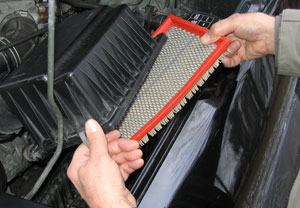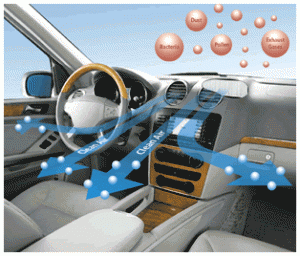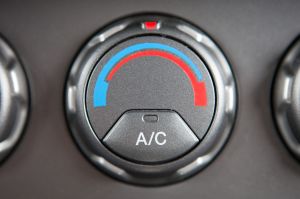 All new cars and light trucks in Denver since 2008 have come equipped with a tire pressure monitoring system, or TPMS. The tire pressure monitoring system detects when a tire becomes under-inflated and lights up a warning light on the dashboard.
All new cars and light trucks in Denver since 2008 have come equipped with a tire pressure monitoring system, or TPMS. The tire pressure monitoring system detects when a tire becomes under-inflated and lights up a warning light on the dashboard.
So what’s the big deal for drivers? Well, underinflated tires can be a real safety concern. First of all, they don’t handle properly and that can lead to an accident. Second, underinflated tires can overheat and cause the tire to come apart, which could also lead to an accident.
Government regulations requiring TPMS systems aim to reduce accidents in Colorado and save lives, a very worthy goal. There are also positive environmental effects because underinflated tires are fuel wasters – they lose 1 percent of their fuel economy for every 3 pounds of pressure below ideal. So proper tire inflation can save you a tank of gas a year. Your tires will also last longer so you won’t have to replace them as often.
There are two kinds of TPMS systems. So called, direct systems have a battery powered sensor in each wheel that measures tire pressure. The sensor sends a signal to a receiver that illuminates the warning light if pressure is low on a tire.
Indirect systems use a computer program to detect underinflation by measuring wheel rotation speeds and other data.
Drivers will have to replace TPMS parts as they wear out. Obviously, the batteries in the sensors will run out someday. Road salt and grime can damage sensors too. The system needs to be reset when you rotate or change your tires.
Because the TPMS system is so important to your safety, you should make the repairs when they are needed. Also remember, a tire pressure monitoring system is no substitute for regularly checking your tire pressure – at least once a month is recommended.

 Every vehicle owner who has taken their car in for an oil change has been told at one time or another that their engine air filter is dirty. These are the steps that go into determining when your engine air filter needs to be changed.
Every vehicle owner who has taken their car in for an oil change has been told at one time or another that their engine air filter is dirty. These are the steps that go into determining when your engine air filter needs to be changed. Question: My car repair shop said I need a new serpentine belt, but I don’t see any cracks in it. Does it really need to be replaced?
Question: My car repair shop said I need a new serpentine belt, but I don’t see any cracks in it. Does it really need to be replaced? Let’s talk about some of the myths out there about diesel powered vehicles.
Let’s talk about some of the myths out there about diesel powered vehicles. Do you ever get musky odors coming from your car’s air vents? It’s a fairly common experience for Denver drivers. Moisture can accumulate in the air conditioning/heating ventilation system allowing mold, mildew, fungus and bacteria to grow.
Do you ever get musky odors coming from your car’s air vents? It’s a fairly common experience for Denver drivers. Moisture can accumulate in the air conditioning/heating ventilation system allowing mold, mildew, fungus and bacteria to grow. Let’s talk about air conditioning service and repair issues today. Most of us in Denver don’t give our air conditioning a second thought – just as long as it’s making cold air. But it’s a complex and expensive system that we should think more about before it starts blowing out hot air.
Let’s talk about air conditioning service and repair issues today. Most of us in Denver don’t give our air conditioning a second thought – just as long as it’s making cold air. But it’s a complex and expensive system that we should think more about before it starts blowing out hot air. Express Car Care Question: I was driving down the freeway in Denver and smoke started coming out of my car. I pulled over and called my husband. I had to be towed to my mechanic. He said my car had overheated. What can I do to prevent this from happening in the future?
Express Car Care Question: I was driving down the freeway in Denver and smoke started coming out of my car. I pulled over and called my husband. I had to be towed to my mechanic. He said my car had overheated. What can I do to prevent this from happening in the future? The axle assemblies in your vehicle transfer power out to the drive wheels. On the rear-wheel drive vehicle, there is an axle shaft that goes from the differential in the center of the axle to each of the rear wheels. On the front-wheel drive vehicle, the axle shafts go from the transmission to each front-wheel. All-wheel drive vehicles have axle shafts connected to all four wheels.
The axle assemblies in your vehicle transfer power out to the drive wheels. On the rear-wheel drive vehicle, there is an axle shaft that goes from the differential in the center of the axle to each of the rear wheels. On the front-wheel drive vehicle, the axle shafts go from the transmission to each front-wheel. All-wheel drive vehicles have axle shafts connected to all four wheels. Question: When should I replace my windshield wipers?
Question: When should I replace my windshield wipers? After a recent experience of driving on hazardous roads with dangerous drivers I think it’s a good idea to share this article from AAA written by J. Skyler McKinley
After a recent experience of driving on hazardous roads with dangerous drivers I think it’s a good idea to share this article from AAA written by J. Skyler McKinley